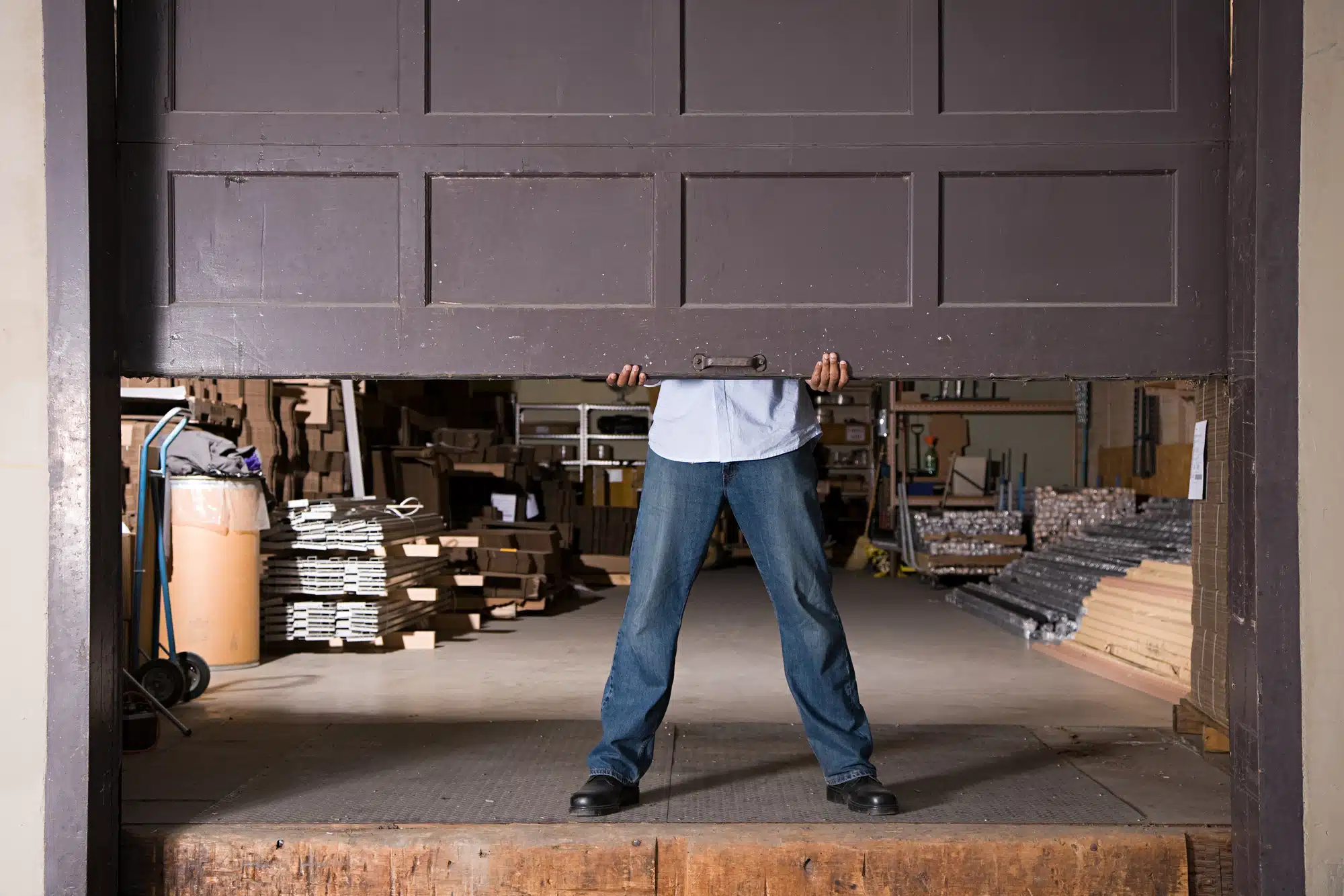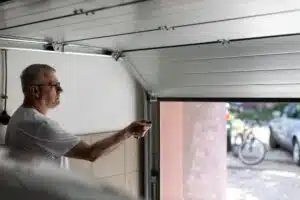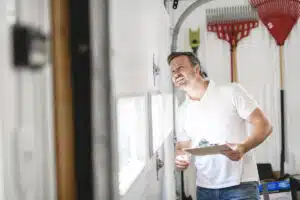For many people, a home without a garage door is a deal breaker. That’s because a home with a working garage door offers many securities to homeowners.
So, when there are signs of a malfunctioning door, there’s cause for concern.
A garage door adds value and uplifts the aesthetics of your home. It reduces the risk of danger and provides extra storage. It also makes for easier car maintenance, shielding your vehicle from outside elements.
Unfortunately, one of the first things to go on a garage door is the spring. Although many people suspect other things when it happens.
If you feel like a key component of your garage door is not working, we know why. We examine 10 signs that you may have a broken garage door spring.
1. Rise and Stop Motion Signals a Broken Garage Door Spring
When a garage door spring functions appropriately, the door rises and closes with ease. When the spring is malfunctioning, the opposite happens.
The door may rise a few inches or more and then come to a complete stop. This is because of a safety feature built into the garage door opener.
A sensitivity measure gets built into every garage door brand. It controls the strength with which the door opens and closes. It there’s an issue that’s affecting the function of the door, this measure activates to prevent damage to the door.
In this case, the door rises slow and halts almost right away. It’s safe to suspect the spring at this point.
2. A Heavy Garage Door
When you go to open the door but it feels heavy, there’s a possibility the spring needs replacing.
The weight of a garage door receives support from a spring–a torsion spring. A torsion spring maintains rotational energy between two surfaces, bearing weight.
If the spring breaks, whatever it’s holding up becomes like dead weight. In the case of a garage door, when the torsion tears, the door becomes extremely heavy. It feels like trying to hoist an excessive load.
3. You Hear a Loud Sound in the Garage
Because torsion springs rotate energy, if they break or tear apart, that energy gets displaced. When this happens, sound emits–a very loud sound.
Prior to investigating, many people hear a loud bang in the garage and suspect something else. Fallen storage boxes, a blown fuse box, and a broken window may sound similar.
This sudden startling sound may be a broken torsion spring. In as fast as a second, it unravels, coils spin around the shaft, and a loud bang erupts. If you’ve never seen a spring break, you wouldn’t consider it.
But that should be your first indication.
4. A Crooked Door
Springs don’t just make sure the door opens and closes the right way, they help the door stay on straight.
When a garage door gets installed on a property, the builders will affix torsion springs on each side of the door. Both springs pull the door on their own. When one springs tears or breaks, it affects that side of the door.
The result is a crooked garage door. One spring’s holding up the door from one side causing it to look like the door’s sideways.
5. Spring Gap
If you’ve seen the spring but have no idea it weighed so heavily on the functioning of your garage door, that gap means something.
When a spring begins to fault, it unwinds, leaving a gap in the middle of the spring. This gap may stretch about 1″ to 2″ in length, sometimes bigger. This is a sign of compression in the spring forcing metal away from it.
If you notice this gap in a spring on either side, contact a specialist right away. Don’t attempt to fix it on your own, if you’re not experienced. You could cause more damage to your door.
6. The Garage Door Stutters on the Way up and Down
Some garage doors have extension springs. These springs also absorb and store energy to create enough resistance for pulling force. That same pulling force that lifts a garage door open.
Extension springs create more danger than torsion springs when they break. They don’t just emit sound, they go airborne. A flying extension spring can break a window or cause serious bodily injury.
When your garage door jerks as it opens and closes, immediately suspect the extension springs.
7. The Door Begins to Bend
Every garage door opener is different, but their main function is the same–to open the garage door.
But depending on the type of opener you have, it could bend your garage door if the spring is dying out. When the sensitivity of the opening force gets adjusted all the way up, it tries to protect the door.
In doing so, the top of the door gets bent down to keep the door from falling down. If you notice a bend in the top of the door, it’s time to replace the springs.
8. Loose Cables
Most people believe their garage doors open and close by cables alone. Cables are usually present when a garage door has extension springs.
Extension springs have sheaves that need long cables–pulley-like cables. This pulley-like motion lifts the door up and down. But when the extension spring breaks, cables go everywhere.
Or in some cases, when the spring is on its way out, the cables become slack and hang out of place. Be careful of loose cables.
9. Slow Moving Door
If it seems like it takes forever for the door to open and close, blame the torsion spring.
Garage doors also have motors. The motor starts off at a sound speed then increases. When a spring breaks, the heaviness of the garage door can slow the speed of the motor.
When this happens, the door rises and closes much slower than usual.
10. The Garage Door Falls Fast on the Way Down
A door that falls fast when it’s closing, is a clear sign you have broken spring. A door opener cannot handle the weight of an off-balanced garage door.
An unbalanced garage door, caused by a broken spring, can cause the door to fall faster than usual.
Replace Your Broken Spring
An operative garage door malfunctions when you have a broken garage door spring.
Look for one of these ten signs the next time suspect an issue with your garage door. Then call a professional.
Check out our service and repair options for your garage door needs.








